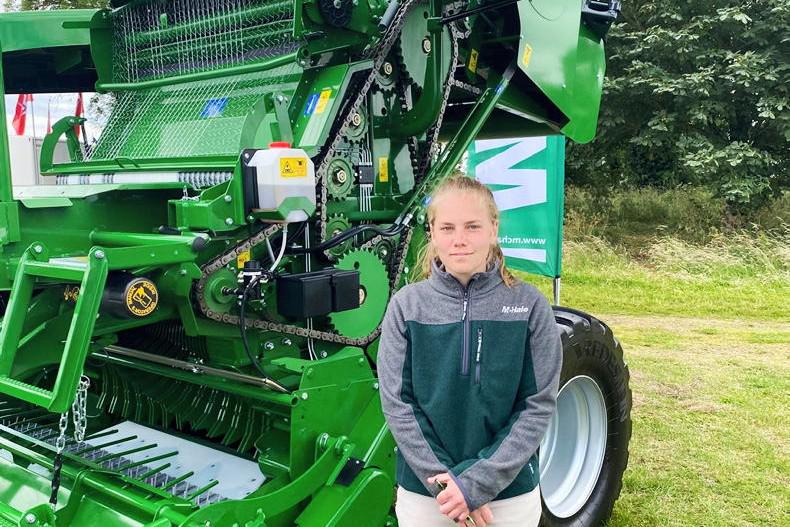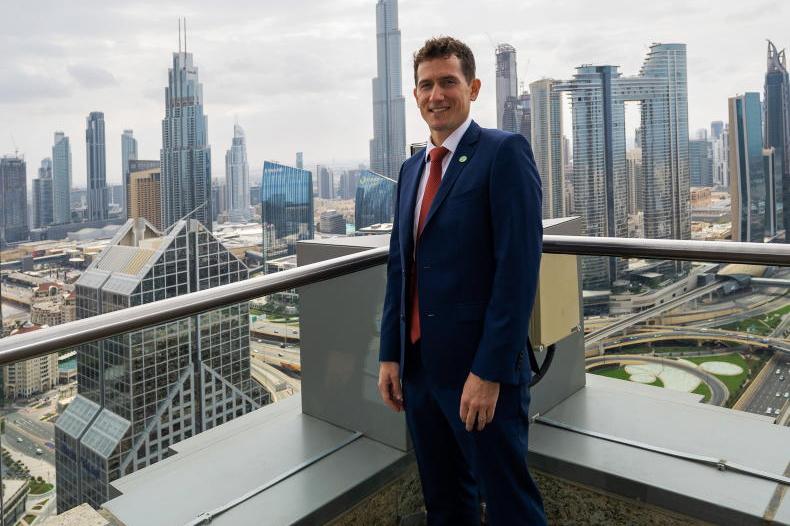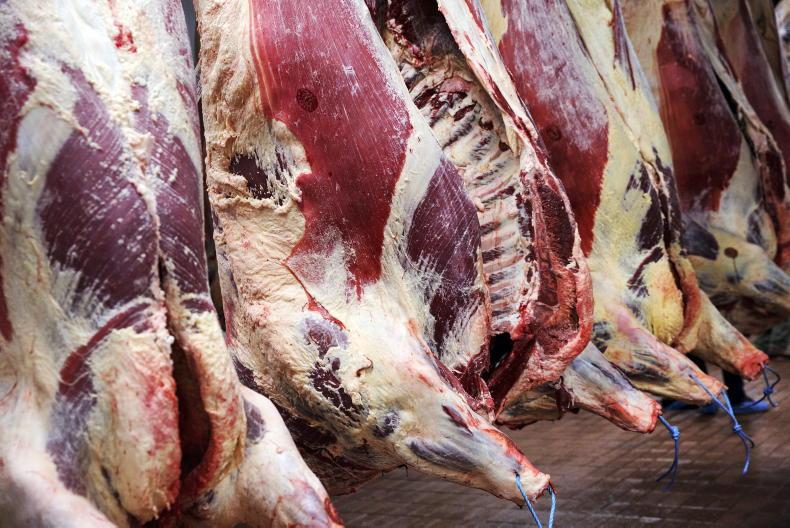In my last article I covered the first phase of the Nuffield Global Focus Programme (GFP), which looked at agricultural systems in the Pacific North West of the US, as well as the Czech Republic and Ukraine. This month I want to talk about the next phase of the trip, which took us to Kenya.
In Kenya we were hosted by the late David Stanley, who was a 1965 Kenyan Nuffield scholar. David gave the group a fantastic overview of agriculture in Kenya, and our group felt truly privileged to have spent time with him.
David was forward thinking and extremely well connected in the Kenyan agricultural community, sitting on many boards and advising local businesses. In fact, when I returned to Kenya a few weeks later for my own personal Nuffield travels, I was shocked by how many people knew him, and this really opened up doors for me. Our second host was Dr Sarah Flowers, who is originally from Tanzania, but ironically did her PhD at the University of Aberdeen, which is the same university where I did mine. It was great to share this connection, and when I returned to Kenya, Sarah provided so many connections and introductions that my return visit was really easy – but I will speak more about this in future articles.
So, our Kenyan trip started off with a networking event, which was hosted by the Australian High Commissioner to Kenya, Alison Chartres. We were also joined by a number of representatives from local businesses, ranging from Tilapia production, through to fruit juice production.
Understanding agriculture’s importance
Next, we went to visit the Christopher Kiamba Memorial School and were hosted by Major General (Rtd) Joseph Musomba, who is a former Kenyan Ambassador to Australia and Pakistan, and established the school in memory of his late son, Christopher Kiamba Musomba.
This was an inspiring visit for everyone. For us, it was meeting these bright young girls with aspirations of being doctors and lawyers, and for them, it was meeting nine international Nuffield scholars and seeing that there is a future in agriculture. Many of these girls viewed farming as a profession that their grandparents did, and education was the key to bigger and better things.
So for them it was interesting meeting someone like myself, with a PhD and MBA, and realising agriculture is important, as we need to find a way of feeding a growing world population. From there, we went to visit Stanley & Son PLC, which is David Stanley’s family farm.
We spent the afternoon helping them milk their cows, which amazingly they still do by hand. Each cow has a name, and when that name is called, the cow comes to attention. Amazing!
Diversifying a family business
Our next visit was to Kisima, which is a dynamic and diverse business, covering fresh cut flowers, fruit, arable, forestry and seed potato production. The flower production was particularly impressive, with a combination of indoor and outdoor production. Kisima aim to cut, process and transport cut flowers to the Royal Flora auctions in the Netherlands within three days, with up to 2 million flowers are being sent each month. And most of this is processed by hand. They are also very forward thinking when it comes to pest control, having already adopted a mixture of biological control and integrated pest management systems. One of the things that I thought was most interesting about Kisima is that the family farm has adopted a corporate board structure.
They have employed an external managing director, and each family member has the opportunity to spend two years on the board on an advisory role. This allows each generation to determine their level of involvement within the business.
Another equally impressive farm was Kakuzi, where they are producing tea, avocados, beef, macadamia, as well as many other products for the domestic and export markets. Our GFP group spent an afternoon visiting their macadamia processing facility which was very impressive. I also enjoyed visiting Pick ‘n Peel, a forward-thinking juicing company. This was exciting for me as I sit on the board of a boutique investment firm that has invested into a similar facility in Italy. I was excited to learn as much as I could! We were hosted by their MD, Richard Kimani Rugendo, and had a fantastic tour of their facility, which produces 60% of Kenya’s fresh juice.
This was an inspiring business, with a high level of automation, as well as producing all their own bottles and caps. They also use all their waste, with it either being use as cattle feed, or the pips being dried down and used as fuel for the pasteurisation process. Pick ‘n Peel has a strong supply chain, and an excellent relationship with smallholder farmers, with a tractability system in place. The family are all involved in the business, with one of Richard’s son’s even studying biochemistry and developing new products.
Focus on livestock
Our Kenya trip also included a visit to the International Livestock Research Institute, where we met with a number of their scientific researchers. We also visited Ausquest, which is an arable farm established by Stuart Barden, a 2009 Australia Nuffield Scholar. In addition, we also attended a knowledge transfer day with a group of smallholder farmers from Eburru. The final exciting visit in Kenya was to Mogwooni, a Boran cattle ranch which is run by Jacky and Mandy Kenyon. Jacky’s mother, Jane Kenyon, was one of the original UK Nuffield scholars in 1947, so it was an honour to spend time with this family dynasty.
I really enjoyed the Kenyan leg of the Nuffield GFP trip. Although I have spent a significant amount of time in Sub-Saharan Africa over the years, this trip gave me a completely different perspective and I have learnt so much.
Join me next time to hear about the final leg of my GFP trip in South Africa. After that, my articles will start focusing on my own personal Nuffield travels, which includes a trip back to Kenya, as well as visiting central Europe, the US, Canada, Brazil, Japan, Australia and New Zealand to look at the future of slug control.













SHARING OPTIONS